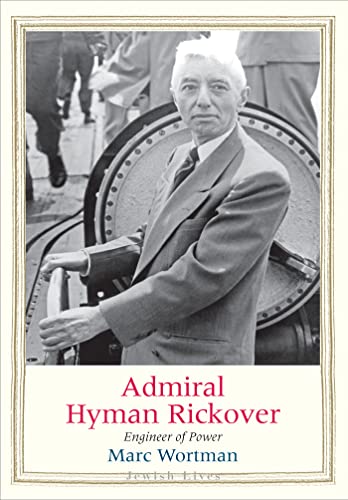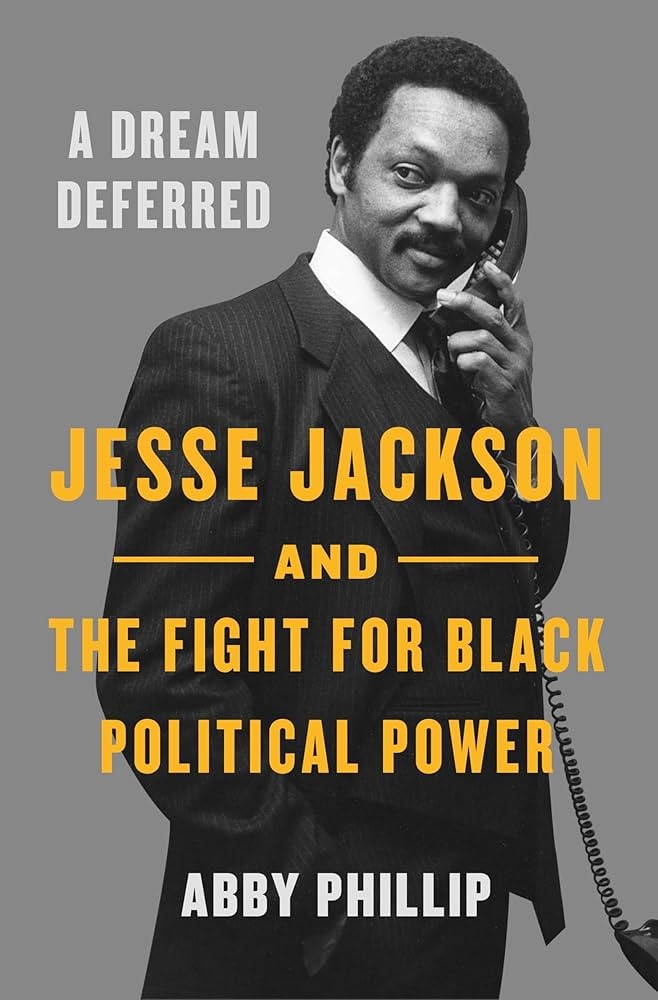The Master of the Nuclear War Machine
A new biography of Hyman Rickover and his reinvention of the United States Navy.
By Gerald Early
May 13, 2022

Admiral Hyman Rickover: Engineer of Power
You take some Jew and treat him lousy his whole life. You treat him like dirt. Watch out! He’s going to do something.
—Admiral Hyman Rickover speaking to an aide, quoted in Admiral Hyman Rickover: Engineer of Power (252)
During his lifetime, there was a long line of people who thought Admiral Hyman Rickover was an insufferable son of a bitch, a contemptible ass, an overbearing, opinionated, power-hungry menace. Biographer Marc Wortman called him, “obstinate, egotistical, and abrasive…” (119)
Many in the upper echelons of the Navy command felt intense hatred for the Father of the Nuclear Navy, as he was called. They had endured his disdain for their authority, his “rebellion against the Navy’s chain of command, protocols, and culture.” (119) So did some corporate leaders who were tongue-lashed and bullied by Rickover’s insistence that they meet his deadlines on their contracts. Rickover felt that defense contractors were hustlers bloating themselves at the taxpayers’ trough and would sic his team of micro-managers on them to fulfill the terms of their contracts. The contractors felt that Rickover did not fully appreciate the risk “in building large, complex, long-timeline projects like ships, especially highly sophisticated nuclear-powered vessels… outfitted with untested technologies…” (225) Many defense contractors left the business simply because the rewards were not worth the risks.
This wiry, iron-willed Jew’s love-hate affair with the U.S. Navy dated back to his days as a cadet at the United States Naval Academy, one of seventeen Jews (less than 2 percent) in his class when he entered in 1918. He was referred to as “the little Jew.” Only six Jews managed to graduate with Rickover four years later. Rickover felt the Academy was “‘a lousy boy’s school,’” (27) much as George Orwell felt about his prep school, St. Cyprian’s School, for largely the same reasons: upper-class privilege and cliques that bred anti-intellectual mediocrity, teachers encouraging an atmosphere of favoritism, and bullying and brutal hazing disguised as character building. As a Jew and an unathletic boy, Rickover suffered the brunt of this oppressive culture keenly. This surely explains why, in his later life, he used his power to change the nature of the education at the Academy, making the curriculum more rigorously scientific and engineering-oriented, a school to produce technocrats, not naval officers as that was traditionally or conventionally understood. Rickover was the Poor Little Jewish grind at the Academy, and he decided to make it over, or try to, into a school for grinds. In his later life, Rickover wrote a book about education, expressing his views that American schools were not very good, controlled by “progressive educators [who raised] ‘a generation of Americans who expect to obtain all good things without effort and who acquire a wholly false notion of their importance because they never had an opportunity at school to compare their own true accomplishments with those of others.’” (166)
This wiry, iron-willed Jew’s love-hate affair with the U.S. Navy dated back to his days as a cadet at the United States Naval Academy, one of seventeen Jews (less than 2 percent) in his class when he entered in 1918. He was referred to as “the little Jew.”
Like all grinds, Rickover had an enormous, almost supernatural, capacity for work (to beat your opponents, outwork them); he possessed a formidable mind, was argumentative, well-prepared, well-read, rude, foul-mouthed, and indifferent to whether people, especially his superiors, liked him. In fact, he seemed to go out of his way to court and cultivate their dislike, their sheer hatred. He was not concerned about whether his subordinates liked him either. Yet he inspired enormous loyalty, doubtless because of his dedication. His fans, in and out of the Navy, were legion. Navy higher-ups tried to fire (or retire) him for over thirty years without success. When John Kennedy appointed Robert McNamara, the boy wonder from Ford, one of the best and the brightest, secretary of defense in 1961, McNamara was determined to run Rickover out of the Navy and from his job as head Naval Reactors (NR), the nuclear energy arm of Naval research and development. In 1969, McNamara was gone, and Rickover was still in charge at NR. It took a herculean effort on the part of Ronald Reagan’s secretary of the Navy John F. Lehman, Jr. to force Rickover to retire in 1982. He was 82 years old and had been in the Navy for nearly 64 years. He blew up at a non-plussed Reagan for forcing him to retire, when the two men met during Rickover’s final days.
His attitude, perhaps his motto, for his entire professional life as a naval officer was “Fuck the Navy,” his righteous war against bureaucratic orthodoxy, hierarchal tradition, and mindless elitism. This vulgarity almost lyrically captures Rickover’s sentiments, the complexity and depth of his feeling of alienation, his pain in living with the memory of it, his triumph at exploiting it as a spur to fight his enemies, and his guilt at never becoming indifferent to it. (Every victim of oppression, no matter gleefully he or she pursues revenge, secretly feels guilt about succumbing to that urge, for it is, in some respects, a weakness disguised as strength, and it also reveals how much the thing that oppresses you also defines you in ways that you will not let go.) He firmly and correctly believed that he was making the Navy better. But like a good many ambitious and successful crusaders, he stayed in the job too long. He was a deeply patriotic man.
Rickover had an enormous, almost supernatural, capacity for work (to beat your opponents, outwork them); he possessed a formidable mind, was argumentative, well-prepared, well-read, rude, foul-mouthed, and indifferent to whether people, especially his superiors, liked him. In fact, he seemed to go out of his way to court and cultivate their dislike, their sheer hatred.
Marc Wortman’s biography, not the first of Rickover but the most concise and as informative and well written as other books in Yale’s Jewish Lives are, tells three stories seamlessly: the first is the immigrant Jewish boy who adopts the United States as his new home and becomes an American, the story of assimilation and redefinition, the story of what it means to be an American. The second story is about the military—specifically, the Navy—what it was like to serve in that branch of the service in the years leading up to World War II, the politics surrounding promotion, how careers are made or unmade, why the Navy was nearly on the brink of being mothballed as a service branch after the war when the atomic bomb seemed to have made it irrelevant to American national security (Hello, General Curtis LeMay and the Strategic Arm Command). The third story is about the development of the peaceful atom, the use of nuclear power for something other than making bombs. In this regard, Rickover was a central figure. Rickover took over the nuclear Navy shortly after WWII at a time when no one cared about it and pitched the idea of nuclear-powered submarines which higher ups thought to be either impractical or impossible. It was Rickover who spearheaded the drive to create the Nautilus, the nation’s first nuclear-powered sub and to do so (have it commissioned) within five years or by 1955. Even if, some conceded, the nuclear sub was desirable, nearly everyone thought the timetable was insane. It would take at least ten years to develop such a machine, so conventional thinking went. And it was desirable. A nuclear-powered sub could stay submerged indefinitely, for weeks at a time, (diesel-powered subs had to emerge every 48 hours to recharge their batteries) providing both fresh water and breathable air, could travel faster when submerged, and was more difficult to detect by surface destroyers. In fact, the Nautilus “destroyed” every ship sent to sink it in its first war-game exercise while the ships could not even find it, out-maneuvering and outrunning surface vessels with ease. Nuclear power made the submarine the ultimate hunter-killer of the seas.
The key, of course, was developing a nuclear reactor that could power the sub without blowing it up or bombarding it with radiation. Here Rickover’s personality, his dedication to work, his insistence on checks and double-checks and safety standards and micromanaging, his recruiting of only the best, most imaginative, and hardest working engineers for the job, his furious rebukes of contractors at all hours of the day and night who did not deliver on time or who did not do their work well; here is the story of how the development of nuclear power that had peacetime possibilities and Rickover’s personality merged at an essential moment to create a reactor that worked by 1953. Someone else could have developed the nuclear sub but no one could have done it as quickly and as well as Rickover did.
The demands Rickover made of his team at NR were almost cruel; the demands he made of himself were inhuman. No one worked harder than he did. Wortman’s account of this feat, his accessible but detailed description of the science, no matter how one may feel about nuclear power now, is spine-tingling and inspiring. It is simply one of those stories that makes one feel proud to be a human being and proud to be an American. This was a story of belief and will. Rickover believed that a safe nuclear reactor could be built and with the help of his team he willed it into existence. This is why this curmudgeonly, ill-tempered man became a hero. (Jimmy Carter, who, during his presidency, went to Rickover frequently for advice, said the only man who influenced more in his life was his father.) The invention of the nuclear reactor made the submarine a nearly invincible war machine, gave a new lease on life for destroyers and battleships, and saved the Navy. The “little Jew” transformed America. Yet at the end of his career, he said designing nuclear-powered ships was “‘a necessary evil. I would sink them all.’” (250) He had little faith in the future of America. “He feared that Americans, having abandoned established religions that helped build community and maintain individual integrity ‘are now living on the accumulated moral capital of traditional religion. It is running out, and we have no other consensus of values to take its place.’” (234) The social justice movement may be the last radical gasps from the fumes of a burnt-out set of ethics, the last spasms of American piety, if one were to extrapolate from Rickover’s pessimism.
He firmly and correctly believed that he was making the Navy better. But like a good many ambitious and successful crusaders, he stayed in the job too long. He was a deeply patriotic man.
One of the worst tragedies involving a nuclear sub during Rickover’s tenure at NR was the destruction of the USS Thresher, the most sophisticated submarine of its time, a marvel of the age. It was supposed to be able to go deeper than any other sub; it was the ultimate hunter-killer like the shark it was named for. (Ironically, the thresher shark is on the verge of extinction because it is so habitually hunted by humans.) On April 9, 1963, the Thresher malfunctioned on its final post-maintenance sea trial, unable to blow its ballasts to surface. It went tail-up into the depths and imploded, killing all 129 men on board including 17 or 21 civilians, depending on the source. “No technological disaster would strike the national psyche with such force until the space shuttle Challenger exploded twenty-three years later,” Wortman writes.
I was 11 years old when it happened and the tragedy haunted me for week, months. It was the first time I actually read front-page news stories because I wanted to know everything I could about the catastrophe. Folksinger Phil Oches wrote an ironical but moving song about it that I listened to over and over when my sister bought his 1964 album, All the News That’s Fit to Sing. When I first heard it, I cried, for I loved submarines. I watched On the Beach, the famous Stanley Kramer film about survivors of a nuclear war, because it featured a nuclear sub. I saw the Burt Lancaster/Clark Gable submarine classic, Run Silent, Run Deep, six times in the theater during its secondary runs. I could not get enough of it. I would watch any WWII movie about submarines. My personal motto was: Run silent and run deep. Whenever my friends and I talked racial politics, which was often, my mantra was, “Negroes need to learn how to run silent and run deep. Cut these White people to ribbons because they will never know where you are.” I did not mean any sort of violence when I said this. I meant to outthink and outwit Whites and never let them know who you really are. It was nearly the only thing I said as a kid that my Black friends thought was cool.
Rickover escaped blame for the Thresher disaster. Not everyone felt he should have. Rickover took pains to exculpate himself as being responsible for the sub’s reactor, not for its design. But Rickover had virtually supervised the construction of the Nautilus and other nuclear subs. And if the reactor malfunctioned because a leak on the sub’s nuclear control panel shorted out its power, then was not Rickover directly responsible? It is unclear in Wortman’s book or in other sources, including testimony about the tragedy, how much Rickover supervised the construction of the Thresher, which was built in Portsmouth, New Hampshire, and not at Electric Boats in Groton, Connecticut, the company Rickover worked closely with to build the Nautilus.
The cause of the sub’s failure, it was judged, was not the nuclear reactor but poorly welded joints that caused the Thresher to leak, resulting in an electrical short-circuit when it tried its test deep dive. In fact, the vessel was in dire trouble long before reaching its test depth of 1,300 feet. It probably did not get as far as 1,000 feet. In a previous dive during the sub’s testing days, the crew thought the sub’s instruments were faulty when it showed it was reaching its pressure limit at 1,000 feet. Was that incident a harbinger? In any case, the Thresher then could not blow its ballast tanks to rise probably because fine-mesh strainers had been left in the blow pipes by maintenance crews in Portsmouth, where it had gone for repairs and maintenance, to collect construction debris and so effectively blocked them. Or so the theory goes. The Thresher was never recovered.
The demands Rickover made of his team at NR were almost cruel; the demands he made of himself were inhuman. No one worked harder than he did. Wortman’s account of this feat, his accessible but detailed description of the science, no matter how one may feel about nuclear power now, is spine-tingling and inspiring.
Rickover was opposed to the construction of the Thresher from the beginning, which might be why he did not want to be scapegoated for its failure, convinced as he was that it was unsafe to have a sub go deeper or as deep as the Thresher was supposed to go. Rickover emerged from the incident, in fact, stronger than he had been, for it proved that his stringent demands on contractors and his team management system were the only way to prevent sloppy work and cutting corners. Also, it proved that men chosen for nuclear subs needed to be technical specialists in nuclear subs and not rotating Navy officers, as the Navy traditionally handled ship commands. Rickover’s operations system was eventually adopted across the Navy.
As I grew older, I had to modify my motto: Run silent and run deep, but not too deep. The depths can cloak but they can also crush.




